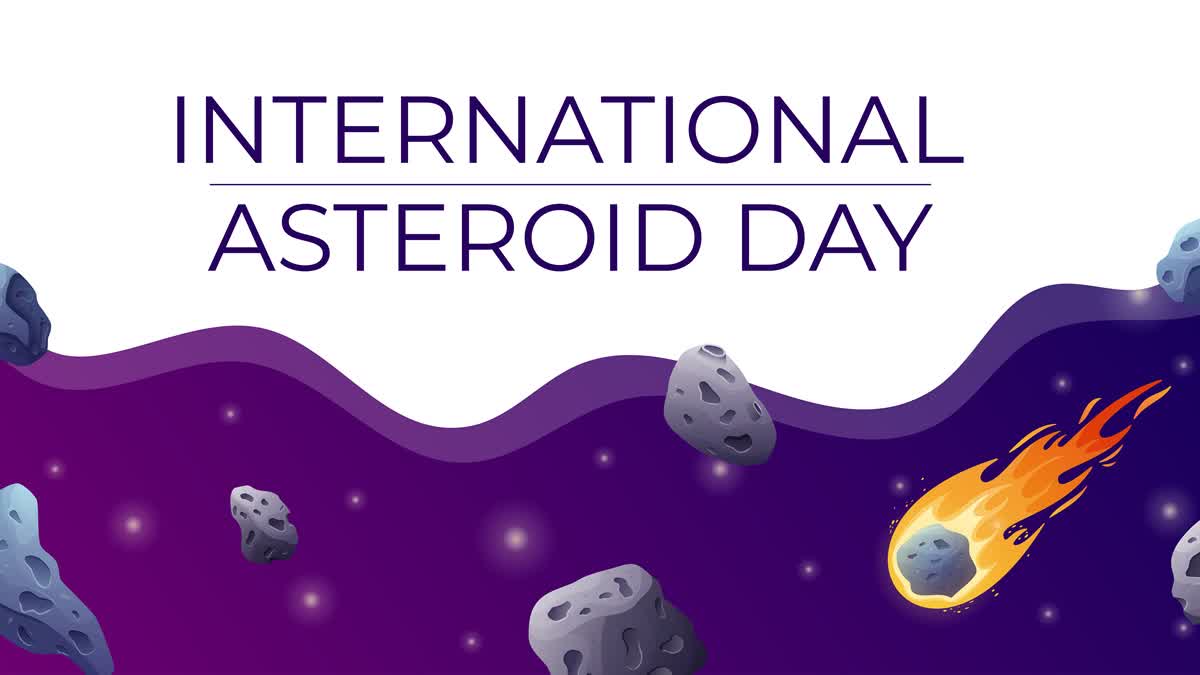Hyderabad: World Asteroid Day, observed annually on June 30, is a global event aimed at raising awareness about asteroids and the potential hazards they pose to our planet. This day serves as a reminder of the importance of scientific research and international collaboration in detecting and mitigating asteroid impacts.
The objective of International Asteroid Day is to educate the populace all over the globe about asteroids. The day also aims at enlightening individuals about the potential cataclysmic results of the impacts of asteroids on the planet. The International Asteroid Day is celebrated globally by all the member countries of the United Nations.
What Is an Asteroid?
Asteroids are rocky leftovers from the formation of the solar system 4.6 billion years ago. They revolve around the Sun and are sometimes called planetoids or minor planets. Asteroids are mainly composed of minerals and rocks, while comets are made of dust and ice. Meteorites can be dust particles or fragments from a comet or an asteroid.
History
World Asteroid Day commemorates the anniversary of the Tunguska event in 1908. This event was caused by an asteroid or comet fragment exploding over Siberia, Russia, flattening around 2,000 square kilometers of forest. The United Nations officially declared World Asteroid Day in 2016 to raise awareness about the potential hazards of asteroid impacts. The day was established through the efforts of astrophysicist Dr. Brian May, filmmaker Grig Richters, Apollo 9 astronaut Rusty Schweickart, and B612 Foundation president Danica Remy. Their goal was to inform the public about the dangers of asteroids and encourage global efforts to study and mitigate these risks.
Significance
This day serves as a reminder of the devastating impact asteroids can have on Earth and highlights the incident of the 1908 Tunguska event and the Chelyabinsk event of 2013 in recorded history. The catastrophic impact of an asteroid on earth can understand from the fact that around 65 million years ago a chain reaction started by an asteroid impact led to the extinction of the dinosaurs and affected all life on Earth. It is also an ideal day to think of measures to save the planet from the hazardous effects of asteroids Since asteroids formed at the same time as other objects in our solar system, these space rocks can give scientists lots of information about the history of planets and the sun. Scientists can learn about asteroids by studying meteorites: tiny bits of asteroids that have flown through our atmosphere and landed on Earth’s surface.
What Would Happen If An Asteroid Hit The Earth?
